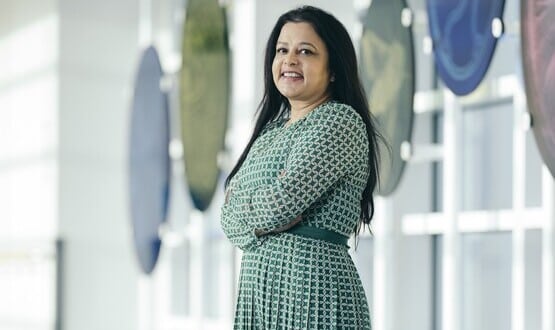Leeds Teaching Hospitals deploys AI software for breast cancer care
- 27 June 2023

Leeds Teaching Hospitals NHS Trust is trialling new artificial intelligence (AI) software that can evaluate the quality of mammograms, spot any positioning errors and in turn help to improve breast cancer care.
The trust’s doctors are working with Densitas, a Canadian company that has developed an AI algorithm that is capable of identifying positioning errors in breast x-ray pictures.
The nine-month-long study is being funded by the Leeds Hospital Charity and will focus on the health economic impacts of the technology. It will also explore how adoption of the technology can boost quality assurance in radiology.
Dr Nisha Sharma, director of breast screening and clinical lead for breast imaging at the trust, said: “This project is important because high-quality mammograms are essential for accurate cancer diagnosis. We want to see how AI can help us to increase the quality of our care in Leeds and save time when our workforce is under pressure.”
Currently, standard practice for quality assurance in radiography involves each radiographer collecting 40 of their own mammograms each month and studying them for positioning errors. They then will out spreadsheets with their findings. But, this process is time-consuming and fundamentally subjective with little oversight.
In contrast, the AI software in the study can show the number of mammograms performed by each radiologist, average image quality and any positioning errors. Radiographers can then review these findings, helping them to identify their own strengths and weaknesses, and are offered relevant training resources to help improve future mammograms.
Dr Sharma added: “When reviewing cancers missed in screening we find that about one-third of them could have been detected with better image quality. Our project aims to improve quality by supporting and educating radiographers and cutting unnecessary administrative work.
“AI has the potential to help us deliver better care in our breast screening programme and symptomatic breast services.”
Mo Abdolell, CEO of Densitas, said: “Our AI solutions address complex issues surrounding operational efficiencies amid a global understaffing crisis. We’re delighted to be working with this forward-looking NHS trust to support mammography quality improvement for better patient care and clinical outcomes.”
It’s not the first AI trial within breast cancer screening services at the trust, as earlier this year Leeds Teaching Hospital launched the first-of-its-kind LIBRA (Leeds Investigation of Breast screening AI) study. That study trialled an AI reader to work alongside two human readers to analyse mammograms for signs of cancer.



